Reality begins to bite as economic woes hit Labor
Midway through Labor’s first term of government after almost a decade in the wilderness, the PM’s ambition for an extended period in government is being questioned.
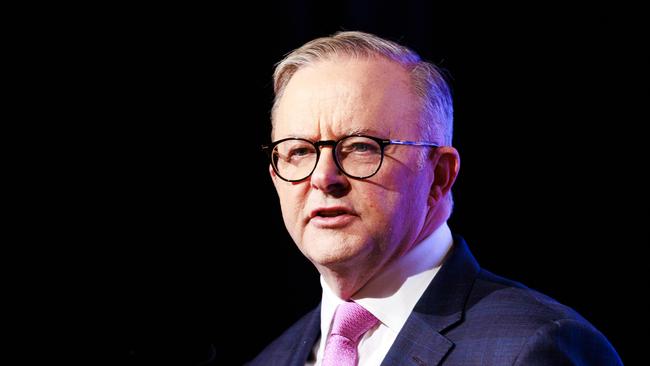
The Prime Minister and his Treasurer, Jim Chalmers, are frozen in the headlights of competing interests. Increasingly acute household demands for relief from rising prices beckon on one hand; and, on the other, the economic risk of fuelling the inflation problem by yielding to populism.
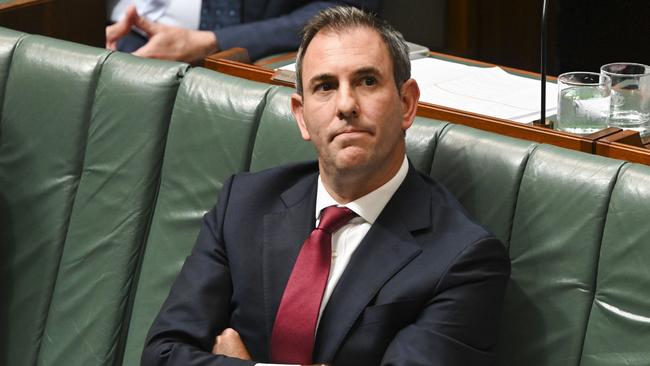
The Prime Minister’s dilemma is the fading economic narrative, frustrated by several unexpected political crises largely of the government’s own making.
Albanese’s necessary absence from the country has added to the perceptions of a government distracted from what should be its primary concern.
Midway through Labor’s first term of government after almost a decade in the wilderness, Albanese’s ambition for an extended period of Labor government already is being questioned.
The political dial has started to shift against Labor, and more so against Albanese personally following the electorate’s rejection of a referendum innately and explicitly linked to Labor policy. The honeymoon with voters is over.
Coinciding with this is a profound structural readjustment. For the first time, the government is being challenged at an institutional level – by the central bank on monetary policy, the universities on migration and the High Court over immigration policy.
This is an unforeseen and complex development that exposes the limits of executive government and its ability to respond to issues central to its economic dilemma.
Labor would argue that much of it is out of the government’s control. There is no question that Labor has returned to government at a time of turmoil. The question is whether the Albanese government has the intellectual depth to cope with such unpredictability.
The new political environment has relapsed into a classical world of two unpopular leaders, one trying to prove himself as a possible prime minister, and a leader now reinforcing the doubts people had about him before the election.
Voters didn’t like Scott Morrison but might have believed he was competent. They might have liked Albanese but doubted whether he was up to the job.
This is the new proposition. Not that voters got it wrong but whether their expectations were ill-founded.
Albanese can point to a list of successes after his first 18 months of government – the theoretical mid-term – but there has been colossal failure as well. The government is now revealing a structural weakness in its ability to respond to more acute political problems as they arise.
The political judgment and maturity of the cabinet is being tested on numerous fronts. The tormented revival of internal party divisions over the Israel-Palestinian question – triggered by the October 7 Hamas terrorist attack – has been expressed publicly through indulgent and contradictory messages from ministers who should otherwise be bound by cabinet solidarity.
Albanese has handled the issue well as Prime Minister but is being let down by notable colleagues. The risk is a projection of disunity.
The problem created by Foreign Minister Penny Wong this week incited criticism from more moderate Jewish leaders and gave the impression of a switch in the collective balance of a Labor position. This gave legitimate licence to the Coalition to go hard on the issue.
Equally damaging has been the government’s seemingly startled reaction to the High Court’s decision to rule invalid the policy of indefinite immigration detention – a key deterrent in the border-protection framework.
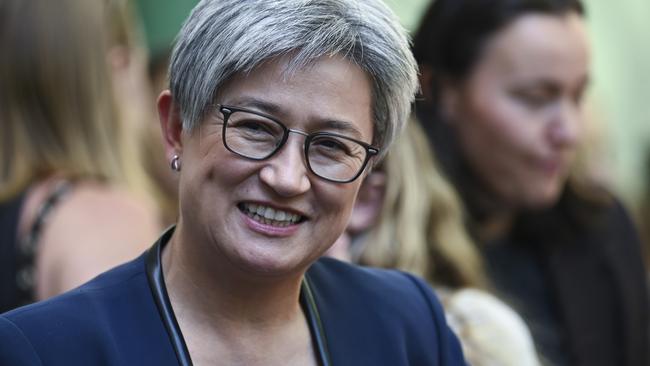
Again, Albanese has been let down by ministers, through a lack of policy rigour and political skill, in a portfolio that has caused Labor profound, existential problems in the past. The only message received by the consuming public will be one of incompetence.
The government’s navigation of the controversy surrounding the decision to block Qatar Airways from expanding its services into Australia and the subsequent decline of public confidence in Qantas also was flat-footed and clumsy. Its claims to transparency were undermined.
Confidence in the government more broadly is at stake. The low-level talk within Labor is that a cabinet reshuffle may be on the cards as a result.
The future effect is compounded by the reversion to parochialism among the Labor premiers with territorial battles looming over funding issues – such as health, the National Disability Insurance Scheme and infrastructure – that are central to Albanese’s fiscal agenda. The claims to a new co-operative federalism now seem elusive.
It’s not at this point yet, but it could easily move to a situation where Albanese completely loses control of the politics.
While these missteps all threaten to damage Albanese’s authority further, compounding the reputational damage caused by the referendum defeat, as leader he remains unchallenged and undaunted. The mood within Labor is mixed. There is no sign of internal anxiety, yet there is unease among some that the two-term proposition is no longer assured. Albanese deflects internal concerns with an air of confidence.
Addressing concerns raised by a colleague recently, Albanese offered a self-assured response, arguing that Labor was still ahead in the polls and governing with a comfortable majority. The message was that there was no threat.
But if Albanese believes he can glide to re-election, then he is inviting potential disaster. Even some of those closest to the levers of government would admit the government’s collective response to the present and emerging challenges has been insufficient.
Falling electoral support could redefine Labor’s mandate for the second half of the term. Having largely fulfilled Labor’s 2022 election manifesto, Albanese will be satisfied that he has achieved in the first 18 months of this term almost all he set out to do. The defeat of the voice referendum stands out as the prominent exception. Albanese’s signature social reform agenda lies in ruin. One senior Labor source downplays the significance of this but acknowledges its effect on the political contest.
“If you assumed there was a honeymoon happening after an election, the opposite is now happening,” the source says.
“The referendum was closely associated with the government and then was defeated; there was always going to be backwash. But the main game remains the economy and cost of living. That is where the remainder of the term will be shaped.”
Albanese will overcome the referendum defeat but will suffer residual damage. He is banking on the nation quickly moving on, despite the opposition’s attempts to prolong it.
The Prime Minister points to his list of achievements so far. By most measures, he has overseen one of the more successful early transitions to government.
Albanese would argue he has delivered or presided over cheaper childcare, cheaper medicines, expanded Medicare bulk billing, pay rises for aged-care workers, an increase to the minimum wage, the first budget surplus in 15 years, 560,000 new jobs, the passing of the $10bn Housing Australia Future Fund, a National Anti-Corruption Commission, a new housing accord with the states and the $15bn National Reconstruction Fund.
Beyond the election promises, there has been energy market intervention to curb power price hikes, progression of the AUKUS trilateral security pact and stabilising the relationship with China.
As a counter to criticism of his international travel, his domestic commitments have been extensive. There can be no criticism of his energy and enthusiasm for the job. Outside of his home state of NSW, he has visited Victoria 32 times, Queensland 23 times, Western Australia 17 times, South Australia 12 times, Tasmania 10 times and the Northern Territory eight times.
But he claims not to be oblivious to the challenges ahead.
“My government’s No.1 priority is addressing inflation and cost-of-living pressures,” he tells Inquirer. “We know Australians are doing it tough, and over the past 18 months we’ve delivered direct cost-of-living relief – making medicines cheaper and it easier to see a doctor, cheaper childcare and electricity-bill relief.
“We’re focused on dealing with the immediate challenges facing our nation while building for the opportunities of the future.
“We’re determined to help Australians through this tough time in a way that makes our nation stronger, more secure and more resilient.”
But Albanese now finds himself in unexpected territory on this most critical of undertakings. The economy is at a tipping point as living standards tumble amid rising interest rates and the inflationary squeeze.
With Labor having described it in opposition as a “cost-of-living crisis”, there was a broad expectation that by this point in the electoral cycle the nation would be over the worst. The reality is one of grand miscalculation.
The crisis has become only more acute on Albanese’s watch. This has up-ended the principal political strategy that, having weathered the storm, Labor could then start building towards its re-election in 2025.
While inflation delivered an enormous hit to incomes around the world, it delivered a bigger than average hit to Australians.
Economist Chris Richardson outlines the political and economic problem neatly. The nation’s living standards peaked in September 2021 and were artificially boosted through temporary Covid payments before falling dramatically. Between then and now, living standards have fallen by almost 10 per cent. This is a greater decline in living standards than during the recessions of the early 1980s and early ’90s.
“If you are reaching for an explanation of the grumpiness of the electorate, that statistic tells the story,” Richardson says.
While the impact of the current inflation problem is being felt everywhere, the most obvious pain has been mortgage pain. The depth of anger flowing from it should not be underestimated.
Richardson points to three things that have occurred that suggest “it is a dangerous time to be designated driver of the bus”: interest rates rising, wages not keeping up with prices and bracket creep forcing millions of taxpayers into higher brackets.
Most households are in at least one of these categories. Some people fall into all of them. The political consequences of all this hinge on timing.
There is significant potential for it to go wrong across the next 12 months. If inflation is still in a problem phase by mid-next year, the government will come under increasing pressure over the stage three tax cuts due. This will tip another $21bn into the economy, potentially at the wrong time.
The May budget will come at a critical period. It will be the last May budget before the next election but may arrive before the inflation problem is resolved.
The temptation will be great for Albanese to unshackle the budget to set up for the election. Again, depending on the inflationary environment, the government will have a difficult choice to make.
Does it surrender to calls for the government to do something substantial on cost of living as personal finances are smashed – and risk pushing against the Reserve Bank of Australia – or maintain discipline? On the economy and cost of living, the government feels it has a good story to tell in terms of the work it has done to support families feeling pressure. And it points to the RBA’s own assessment that its fiscal settings aren’t making the inflation problem worse.
But this is now a live contest. Peter Dutton is attempting to establish the counter story that the persistence of the inflationary problem is a direct result of Labor’s economic management.
Labor knows the dangers of this. While the association has yet to be drawn in the public’s mind, the Coalition has identified that this is the key issue on which it needs to shift public perceptions.
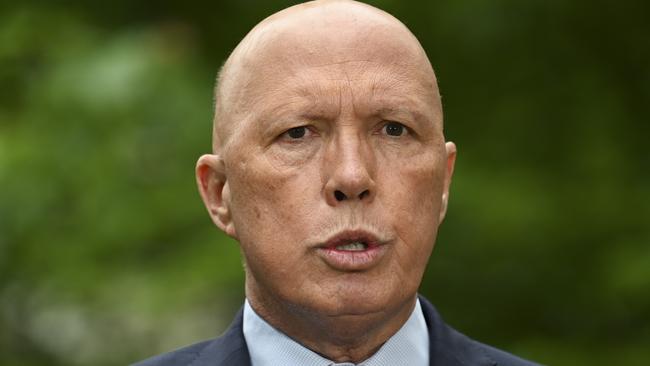
There are conflicting views within Labor about how it is performing and the electoral dangers ahead. Some maintain that the government remains in a reasonably strong position. It’s still the case that Labor support is at the same level as it was at the election last year or slightly ahead.
From Labor’s perspective it’s not necessarily a negative that the caucus is forced to confront a more realistic picture of the contest at this point. Complacency across the party at any level is corrosive.
The polls are tightening and will continue to tighten. While Labor would still win an election if it were held today on the current Newspoll trend, Albanese has suffered significant declines in his approval ratings.
The subplot to the broader political battle is the boutique contest between Labor and the Greens. It is a wrong assumption to make that the government enjoys a comfortable majority. It won’t take much for it to fall into minority government.
Albanese’s proposition is that voters in the end will have to choose between a government led by him or Dutton, and that the Opposition Leader is unlikely to establish himself as a credible or attractive alternative. Dutton is aware of this. He rejects Labor’s claim that his opposition to the Indigenous voice would reinforce the negative stereotype.
“The voice also allowed the public to consider me in a different light than they had as defence minister or home affairs or leader of the house, the hard man for different prime ministers,” Dutton tells Inquirer. “I think it has allowed people to see me in a more positive light than the way Labor seeks to portray me.
“It’s the complete opposite. The Prime Minister had decided Australians couldn’t be trusted with the detail and it was in his political interests not to provide detail. It was a catastrophic failure. He has really damaged himself and the government by not trusting the Australian people. It was dishonest.”
Dutton is comfortable about where the Coalition is midway through the term.
“I knew if we could remain a united team and we weren’t constantly talking about ourselves, and people weren’t positioning themselves and undermining the cause, we would be in a position to put pressure on the government,” he says. “(But) if we are to be re-elected, we have to present our own agenda, it won’t be just a case of people voting out a bad government, they will need a reason to vote us in. I intend to give them every reason to do that.”
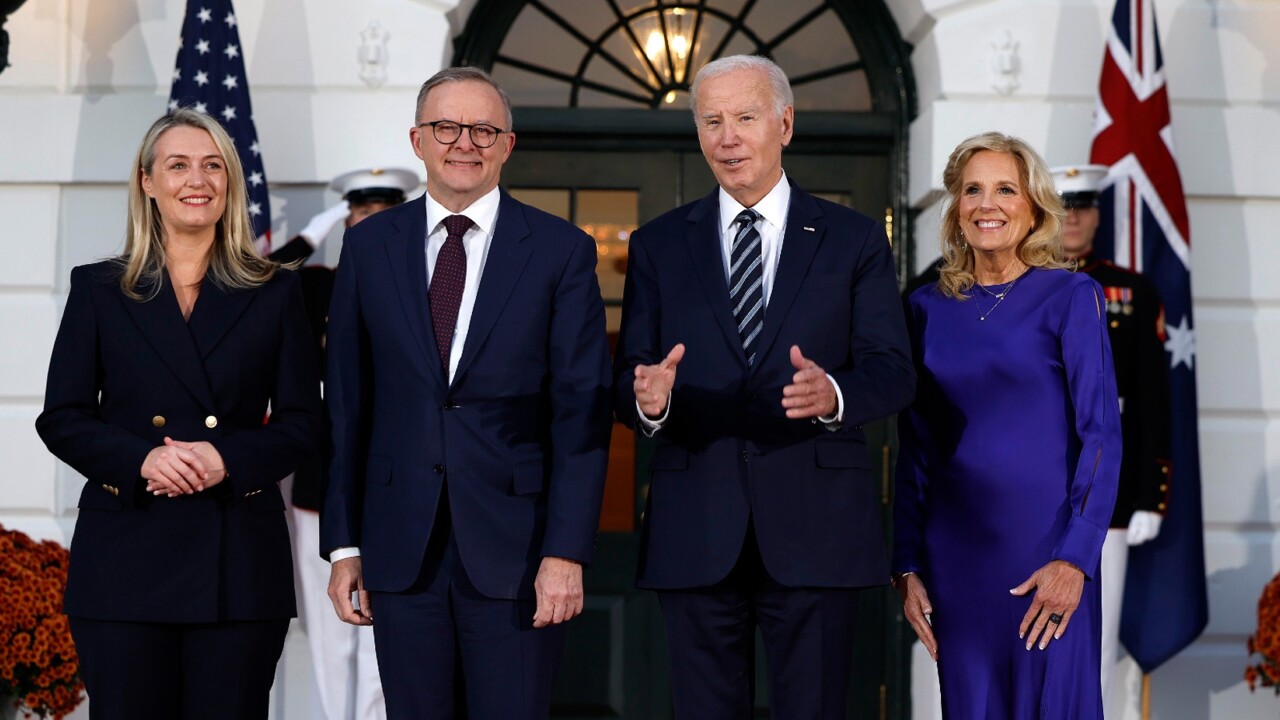
Dutton has identified the key political battlegrounds next year as housing, energy, cost of living and industrial relations. But there is also a debate coming on migration. At a structural level, Dutton says there is a generation of younger Australians, predominantly young families, who may be Labor voters, who are seeking a new political home – a new wave of potential Liberal voters.
“I think there are a lot of Labor voters, who I describe as the kids of the Howard battlers, out in the suburbs, who are now listening to their parents and grandparents about how bad Labor is,” Dutton says. “And now they are seeing it demonstrated through very bad decision-making.
“I think they are out there, and they are aspirational, they want the best for their family, they are feeling terribly let down by this Labor government and a prime minister. I think there is real opportunity for us in that regard. I think those people are looking for a new home, and we intend to be that come the next election.”
Just how Dutton proposes to capitalise on his assessment of the electoral mood will become apparent by the middle of next year.
The budget and budget in reply will be the next major opportunity for both the government and opposition to define the election contest. Most of the policy debate so far has been confined to Labor’s fulfilment of its election manifesto and the immediate responses to changing economic circumstances. It will be the May 2024 budget that will mark the beginning of the election campaign, and the dividing lines between the two camps will become more apparent.


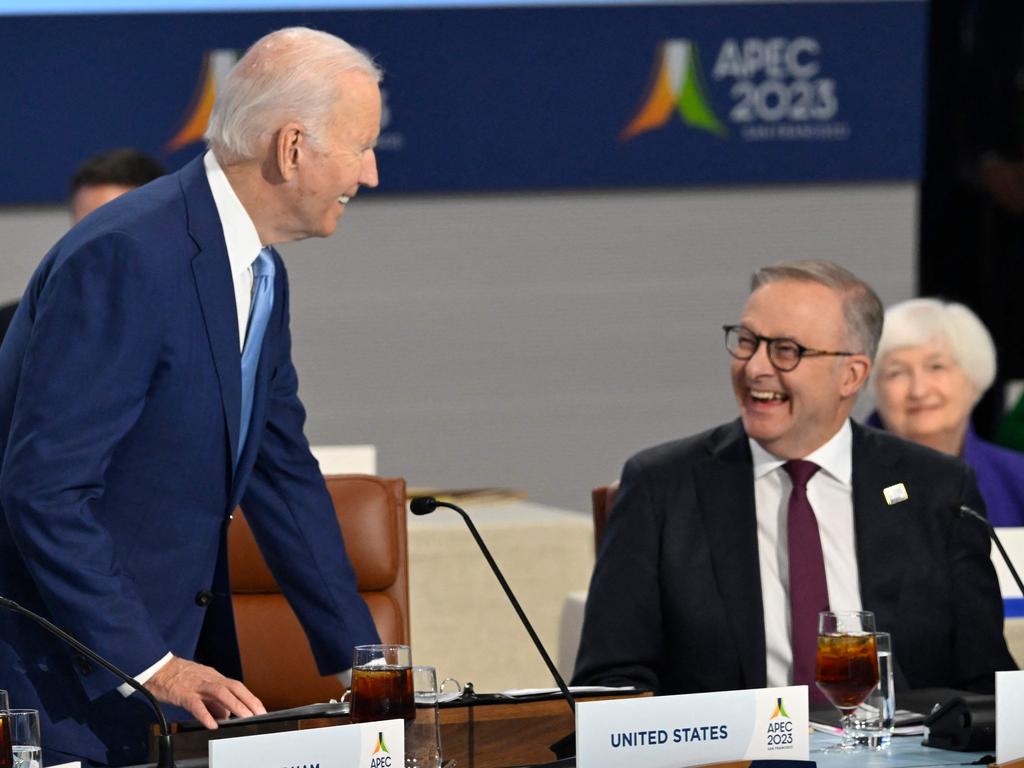



Anthony Albanese is approaching a critical point in his leadership. A collision between electoral demands and economic reality looms. As Labor seeks to redefine its social mission in the ashes of the voice referendum defeat, its vulnerability to the economic question is unambiguous.